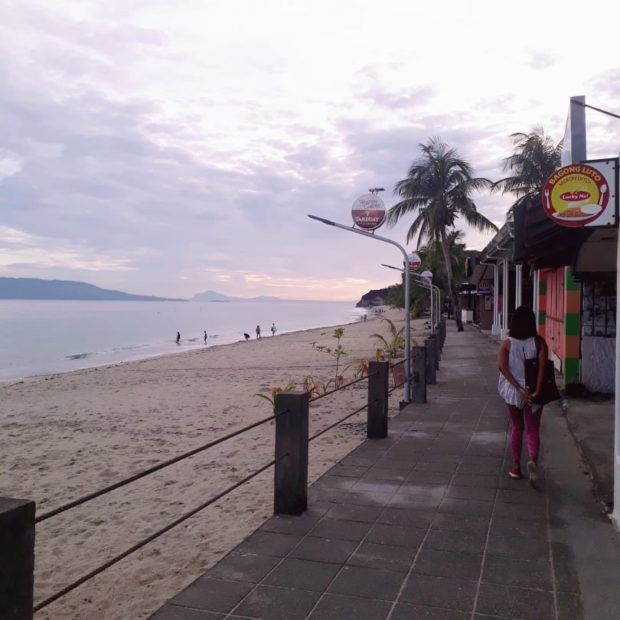
EMPTY Resorts and other business establishments in Puerto Galera are empty as the town suffers from travel restrictions brought about by the global health crisis. —CONTRIBUTED PHOTO
Oriental Mindoro’s popular beach town of Puerto Galera has yet to see any sign of economic activity, a situation which a local official and business owners have predicted to last long without foreign and local tourists around.
Without any new case of the new coronavirus disease (COVID-19), Puerto Galera, as the rest of the island province, has been placed under a modified general community quarantine starting June 1. Local governments began to ease travel restrictions within the island, but have kept borders closed to nonresidents.
Swimming along Puerto Galera’s popular Barangay Sabang and White Beach is still restricted.
“How can someone enjoy [the beach] knowing that the virus is still out there. My [thinking] is you have to assume anyone [is a virus carrier],’” Aileen Bareng, municipal tourism officer, said on Tuesday.
Businesses shut
A small number of infection has been traced to Puerto Galera (only three cases as of June 1, according to the Department of Health), yet the community quarantine since March has disrupted the local economy that relies heavily on tourism.
The municipal government estimated its annual tourist arrival between 70,000 and 80,000.
To business owners like Hank Mirti, who has been running a pizzeria in Sabang in the last nine years, the future looks bleak.
“If somebody comes tomorrow and say, ‘I’ll buy your place,’ I’d be glad to sell even if this is the thing I enjoy doing the most,” the 73-year-old Canadian-Australian expatriate said.
Mirti has since sent his employees away, as daily sales dropped and dine-in prohibited to prevent mass gatherings.
“Hotels are closed, (diving) shops are closed. There are dozens of others too [closing down permanently],” he said.
Joel de Veyra, president of Puerto Galera Business and Tourism Enterprise Association, said reopening hotels, resorts, diving shops and restaurants, “seems impractical since there are no tourists.”
According to De Veyra, Puerto Galera has at least 160 establishments, about 30 percent of which are owned by expatriates who have been living on the island for many years.
Bareng said the local and national governments had repatriated about 400 foreign visitors caught in the lockdown since March.
Even when the threat of virus transmission is over, “tourists will still be scared, if not cash-strapped, to [return here],” De Veyra said.